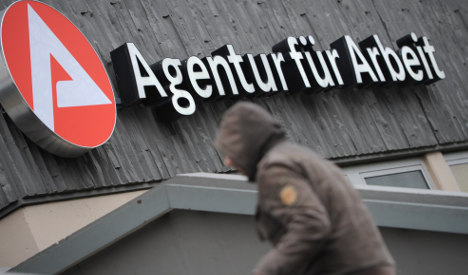The number of people registered as unemployed in Europe’s top economy rose by 25,000 in seasonally adjusted terms last month, the Federal Labour Office said in a statement. Analysts had been expecting a drop of around 5,000.
The unemployment rate – which measures the proportion of people out of work compared with working population as a whole – edged up to 6.9 percent in September from 6.8 percent in August.
“This is due to less relief from labour market policy measures,” the office explained.
By contrast, in raw or unadjusted terms, the German jobless total fell by 96,760 people to 2.849 million and the unadjusted jobless rate declined to 6.6 percent from 6.8 percent, the office calculated.
“The labour market is in fundamentally good shape and is reacting little to
the mixed economic data,” the office said.
Annalisa Piazza at Newedge Strategy said she was taken by surprise by the signs of weakening in September.
“We had expected a slight decline in the unemployment level, due to the recent improvement in activity and signs of improved business conditions,” she said.
While the increase was “not good news for the German economic picture as a whole, we wouldn’t see it as a sign that the German labour market has started to deteriorate,” Piazza said.
Survey indicators have been upbeat in the past few months and business are expecting some improvement. Hiring intentions had also improved in the past
few months, the analyst noted.
“We rule out that the resilience of the German labour market will be affected now that the economy is actually gradually recovering,” she concluded.
IHS Global Insight analyst Timo Klein said the rise in unemployment in August and September “is somewhat at odds with the ongoing improvement in leading indicators in recent months.”
However, “generally improving economic developments, also in Europe as a whole, suggests that unemployment remains likely to stabilize during the latter months of 2013 and return to a declining tendency in 2014,” he said.
AFP/atje
Follow us on Twitter @thelocalgermany
Like The Local Germany on Facebook



 Please whitelist us to continue reading.
Please whitelist us to continue reading.
Member comments